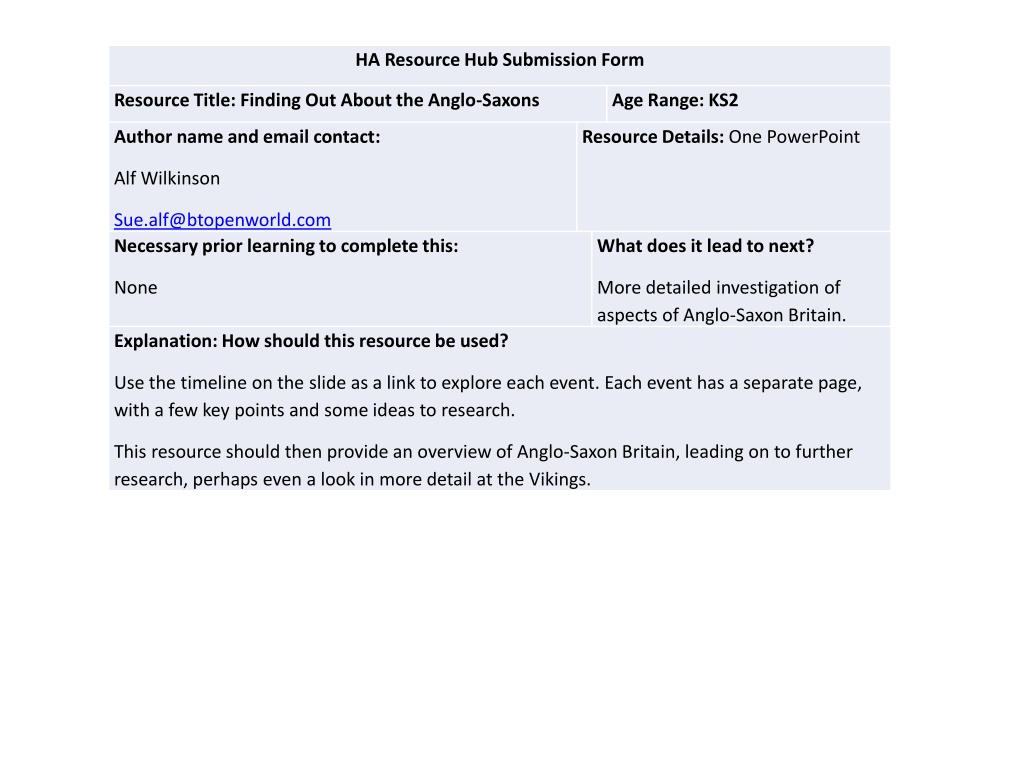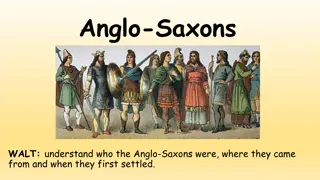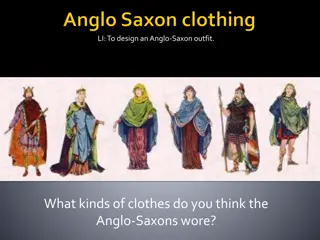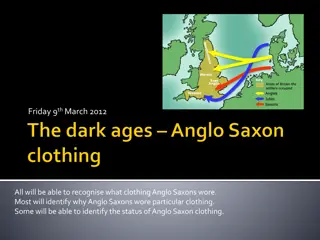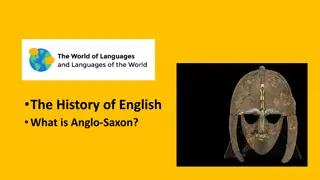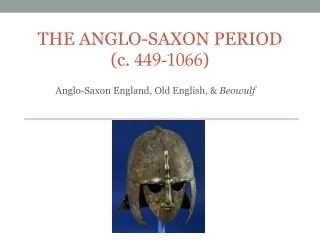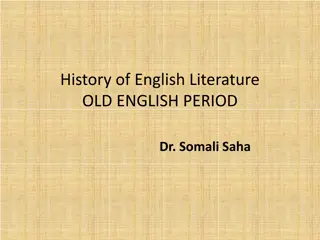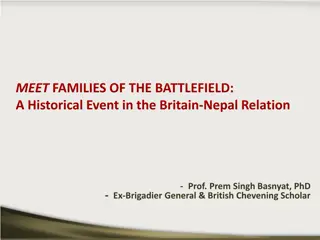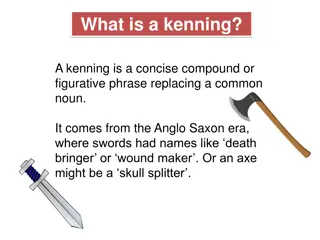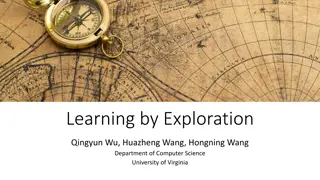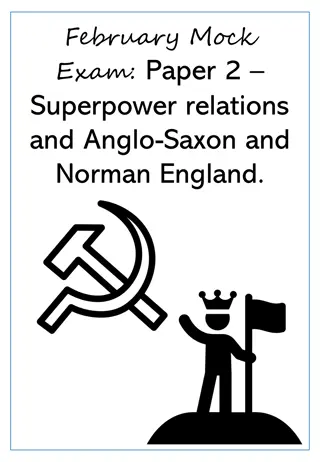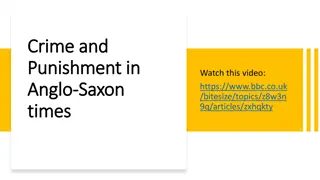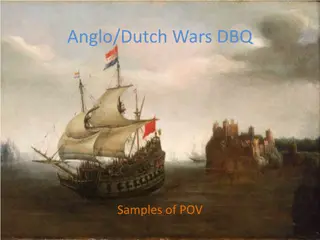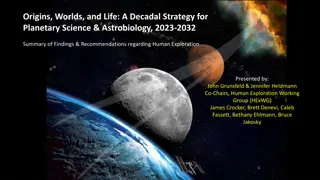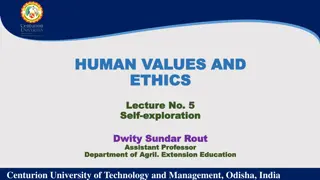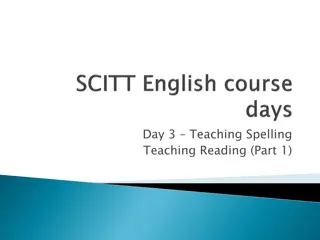Unlocking the World of Anglo-Saxons through Interactive Exploration
Delve into the fascinating realm of Anglo-Saxon England using this interactive PowerPoint resource. Explore key events, ask thought-provoking questions, and access valuable online resources to deepen your understanding. Ideal for KS2 students seeking to uncover the mysteries of this historical period and beyond.
Download Presentation

Please find below an Image/Link to download the presentation.
The content on the website is provided AS IS for your information and personal use only. It may not be sold, licensed, or shared on other websites without obtaining consent from the author. Download presentation by click this link. If you encounter any issues during the download, it is possible that the publisher has removed the file from their server.
E N D
Presentation Transcript
HA Resource Hub Submission Form Resource Title: Finding Out About the Anglo-Saxons Age Range: KS2 Author name and email contact: Resource Details: One PowerPoint Alf Wilkinson Sue.alf@btopenworld.com Necessary prior learning to complete this: What does it lead to next? None More detailed investigation of aspects of Anglo-Saxon Britain. Explanation: How should this resource be used? Use the timeline on the slide as a link to explore each event. Each event has a separate page, with a few key points and some ideas to research. This resource should then provide an overview of Anglo-Saxon Britain, leading on to further research, perhaps even a look in more detail at the Vikings.
Finding out about the Anglo-Saxons The seven kingdoms of Anglo-Saxon England
Key Questions to think about........... how do we know about Anglo-Saxon England? what was the greatest achievement of the Anglo-Saxons? does Anglo-Saxon England deserve to be known as the Dark Ages? did Anglo-Saxons and Vikings manage to coexist peacefully? was England a wealthy country in the 11th Century? A couple of websites to help get you started............. BBC Bitesize :Anglo-Saxons: www.bbc.co.uk/bitesize/topics/zxsbcdm History Extra: Anglo-Saxons: www.historyextra.com/period/anglo-saxon/facts-anglo-saxons-dates/ National Geographic Kids: www.natgeokids.com/uk/discover/history/general-history/anglo-saxons/
Finding out about the Anglo-Saxons 20 14 1 3 1 3 4 8 9 13 17 15 15 2 2 400 5 1066 5 7 18 11 10 6 16 12 19 Click on each number to explore one aspect of Anglo-Saxon England
1. Romans Go Home! Brittania had been part of the Roman Empire for around 400 years the country had been very wealthy and mostly at peace during that time In 410AD the last Roman soldiers left Britain To find out: what impact had the Romans had on life in Britain? why were the Romans going home in 410AD? what did this mean for people living in Britain? Click to continue
2. Vortigern invites Saxons to defend his kingdom Vortigern was king of Kent. His land was being raided by pirates from the sea and invaders from the North he invited some Angles, Saxons and Jutes, led by Hengist and Horsa, to come to Kent and protect him and his people the Saxons liked England so much they sent for more people to come and live here To Find Out: Did Hengist and Horsa really exist, or were they made up people? How did the Saxons get to rule parts of England? Why was England a better place to live than where they came from in Europe? Click to continue
3. King Arthur? the Saxons didn t have it all their own way. Around 500AD, at the Battle of Mons Badonicus, an army led by Artorius, defeated the Saxons. There was peace for around 50 years in many places the Britons and Saxons lived in peace side by side gradually, more and more Saxons settled in England To Find Out: Artorius was said to be descended from a Roman emperor. Is this true? when did the stories about King Arthur spread? How did most Saxons make a living? what were Saxon houses like? Click to continue
4. St Augustine comes from Rome Christianity came to Britain during Roman times Irish monks spread Christianity in the North Most Anglo-Saxons were pagans they worshipped lots of different gods In 597AD the Pope sent Augustine to make the English Christian To find out: Why did the Pope send Augustine to England in 597? What was the difference between the beliefs of the Irish monks and the monks from Rome? How successful was Augustine in making the Anglo- Saxons Christian? click to continue
5. A history Mystery: An Empty Grave? in 1939 archaeologists excavated a mound at Sutton Hoo they found evidence of a ship burial, and lots of treasure they did not find a body.... the ship had been buried in 625AD To Find Out: what does the treasure in the mound tell us about life in East Anglia around 625AD? Where did the items in the grave come from? Whose grave was it? How do we know? Was he Christian or Pagan? what was found in the other mounds? click to continue click to continue
6. Hilda of Whitby Hilda was head of a double-monastery in Whitby women could be independent and get an education in monasteries in 663AD all the leaders of the churches in Britain met in Whitby to decide the best way to be a Christian There were lots of disagreements, but Hilda smoothed it all over when she died she was made a saint To Find Out: What was a double-monastery? Why was it unusual for a woman to be head of one? What can you find out about Hilda and her life? What did the meeting in Whitby decide? click to continue
7. A monk writes a book......... Bede joined the monastery at Jarrow when he was 7 years old he wrote lots of books. The most famous was an Ecclesiastical History of the People of England kings and leaders across Europe asked his opinion and advice some of his books are still in print today To Find Out: what was life like in a monastery? why did rich people give money and land to the Church? why do we still remember Bede today? click to continue click to continue
8. King Offa of Mercia Offa was king of Mercia from 757AD till he died in 796AD he gradually extended Mercia s control over England south of the Humber he made Mercia the most powerful kingdom in England he is most famous for Offa s Dyke To Find Out: How did Offa become King of Mercia? which other kingdoms did he take over? why were the Welsh such a problem for Mercia? how should we remember Offa? click to continue
9. Raid on Lindisfarne! In 793 the Vikings raided the monastery at Lindisfarne in Northumbria many more Viking raids followed over the next 50 years priests were said to have ended their services with the phrase, Lord preserve us from the Northmen! To Find Out: Where did the Northmen, or Vikings, come from? Why were they raiding England? How successful were they? click to continue
10. A Great Heathen Army! in 865AD the Vikings changed tactics they brought an army instead of going home after each raid, the Great Heathen Army [as the Anglo-Saxons called it] stayed over-winter in England quickly, the Vikings conquered large parts of Anglo-Saxon land by 878AD only Wessex was still controlled by the Anglo-Saxons To Find Out: where did the Vikings spend their first winter in England? why were the Vikings so difficult to defeat? click to continue
11. Alfred Burns the Cakes in 878AD Alfred, the King of Wessex, was defeated at Chippenham he was forced to retreat into the marshes of Somerset with only a few remaining supporters. It looked like the Vikings had won! whilst hiding, Alfred is said to have burned the cakes he was meant to be looking after while they cooked finally, Alfred rebuilt his army and defeated the Vikings. Wessex was safe To Find Out: read the story of Alfred and the cakes. It was written much later. What is it meant to tell people about King Alfred? what happened at the Battle of Edington? click to continue
12. King Alfred the Great King Alfred is the only Anglo-Saxon king to be called Great he kept Wessex independent, and gradually extended the area he ruled he improved the laws of his country, making them fairer he made the Church more important he translated books from Latin into English To Find Out: what happened to Alfred s four elder brothers? what was the best thing Alfred did? does he deserve to be called the Great? click to continue
13. Split! by treaty in 886AD, England was split into two, between Wessex in the west and the Danelaw, run by the Vikings, in the East some Vikings continued to attack Wessex, but were defeated by Alfred in effect, England became two separate countries. There were two capital cities, Winchester and York it was truce, rather than a peace To Find Out: what was life like in the Danelaw? Was it similar to Wessex, or different? why did Alfred agree to split England in two? click to continue
14. The Lady of the Mercians Aethelfleda was the daughter of King Alfred. She married the king of Mercia when he died she became ruler of Mercia gradually, between 911AD and her death in 920AD she expanded Mercia and defeated many Viking settlements. often, towns would surrender to her as her armies approached, such was her reputation some historians say she is the only example of a female Saxon ruler! To Find Out: which Viking settlements did Aethelfleda take over? why was she so successful? what were burghs? Why did Aethelfleda build them? why should we remember Aethelfleda? click to continue click to continue
15. A King of all England....... Aethelstan was King Alfred s grandson he is said to have never lost a battle by 937AD he ruled the whole of England he was the first King of England he married each of his sisters to different kings To Find Out: how did Aethelstan make towns and trade more important in England? who was more important in unifying England; Alfred, Aethelfleda or Aethelstan? is it right to say that Aethelstan was the first king of England? click to continue
16. Massacre! the Vikings began to attack England again from 991AD. the king decided to pay Danegeld money to the Vikings to go home the Vikings kept coming back for more money! to solve the problem, King Ethelred decided to kill all the Vikings in England on one day this is known as St Brice s Day Massacre. To Find Out: how much was paid in Danegeld? what happened on St Brice s Day? how did the Vikings react? click to continue
17. The Flying Monk..... around 1005AD Elmer, a monk at Malmesbury Abbey, tried to fly from the top of the tower of the church he made himself some wings, like Icarus he broke both his legs, but survived To Find Out: read the story of Elmer the monk. What does it tell us about learning in monasteries in the C11th? where had Elmer got the idea from? Some historians call this period the Dark Ages. Do you agree? click to continue
18. King Cnut after the St Brice s Day massacre Viking armies attacked England first Sweyn, then Cnut, became Viking kings of England Cnut was king of England, Norway, Denmark and parts of Sweden he brought peace and prosperity to England 220 years after the first Viking raid, England had a Viking king! To Find Out: Read the story of Cnut and the waves. Like Alfred and the cakes, it is probably not true. What is it meant to tell us about how good a king Cnut was? what was Cnut s greatest achievement? click to continue click to continue
19. Harold the most powerful man in England when both of Cnut s sons died, a Saxon, Edward the Confessor, became king of England in 1042AD he was very religious. His earls became very powerful Harold Godwinson, Earl of Wessex, became the most important. He led the army and made most of the decisions To Find Out: was Harold popular with the other Saxons? why did Harold become king in January 1066? [1066 was the Year of Three Kings!] what part did Tostig play in events of 1066? click to continue
20. William the Conqueror two other people thought they should be king of England the Viking Harald Hardraada, and William of Normandy King Harold would have to fight them both to keep his throne in September, Harold beat Harald in Yorkshire he then had to race south to face William who landed in Sussex At the Battle of Hastings Harold was killed. William headed to London and, on December 25th 1066, was crowned King of England. Anglo-Saxon England was no more............ To Find Out: who had the strongest claim to be King of England? was Harold unlucky in 1066? why did William win?- click to continue click to continue
